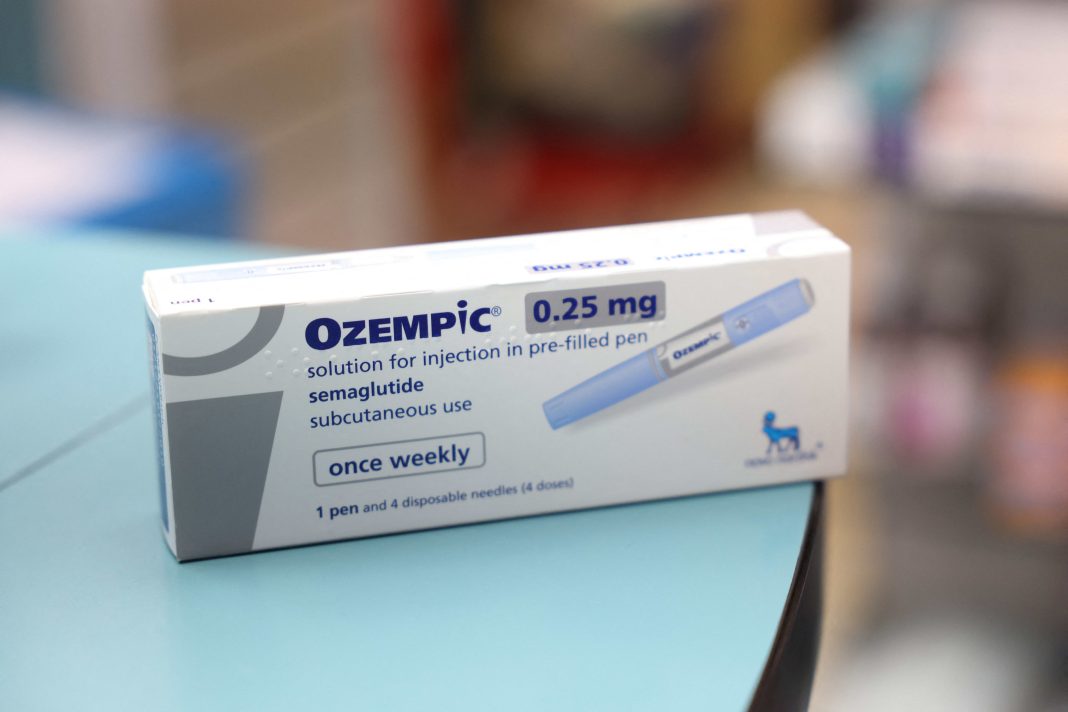In a significant development in the realm of pharmacology and addiction treatment, Novo Nordisk’s diabetes medication Ozempic, which contains the active ingredient semaglutide, has been linked to a reduced risk of opioid overdoses among patients also grappling with opioid use disorder (OUD). A study published in JAMA Network Open reveals that patients with both Type 2 diabetes and OUD who were treated with semaglutide experienced a “significantly lower” risk of opioid overdose compared to those receiving traditional diabetes medications.
The implications of this research are profound, especially considering the ongoing opioid crisis in the United States—a public health emergency declared in 2017. According to the National Center for Drug Abuse Statistics, opioids are involved in approximately 72% of overdose deaths nationwide. Despite the availability of three effective medications for OUD, only about a quarter of patients receive these recommended treatments. Alarmingly, many patients who do begin treatment discontinue it within six months, as reported by the Centers for Disease Control and Prevention.
Dr. Rong Xu, a biomedical informatics professor at Case Western Reserve University and lead author of the study, emphasizes the urgent need for alternative treatments for opioid use disorder. He points out that conventional medications are often underutilized, leaving a gap in care for many patients. The study analyzed electronic health records of nearly 33,000 individuals prescribed semaglutide or other diabetes treatments between December 2017 and June 2023. Among those patients, around 3,000 received semaglutide, while the others were treated with various alternatives, including insulins and older GLP-1 medications like dulaglutide and liraglutide.
What stands out from the findings is the stark difference in opioid overdose cases: only 42 instances occurred among semaglutide users, whereas 97 cases were recorded in those utilizing other diabetes treatments. This represents a staggering 58% lower risk of overdose for those on semaglutide. Despite these promising results, the study is not without limitations, primarily its reliance on electronic health records, which may not capture all relevant variables influencing treatment outcomes.
Experts urge caution and call for further investigation. Dr. Nora Volkow, director of the National Institute on Drug Abuse, emphasizes that while the findings are encouraging, the extent to which GLP-1 medications could effectively treat OUD and prevent overdoses remains uncertain. She advocates for randomized clinical trials that would more definitively assess the benefits of semaglutide for the general population of opioid users versus specific subgroups.
The emerging evidence surrounding GLP-1 medications like semaglutide extends beyond diabetes management, suggesting they may hold promise for various chronic conditions, including kidney disease and addictive behaviors. As healthcare professionals, researchers, and pharmaceutical companies continue to explore these avenues, they may uncover new, innovative strategies for addressing the complex challenges posed by both diabetes and opioid dependency.
In light of these developments, the medical community is poised at a crossroads. If further trials validate the findings, semaglutide could not only revolutionize diabetes treatment but also provide a crucial tool in combating the opioid epidemic. As we await more comprehensive studies, the hope is that this groundbreaking research will pave the way for a multifaceted approach to addiction treatment, ultimately saving lives and improving the quality of care for patients navigating these intertwined health issues.

